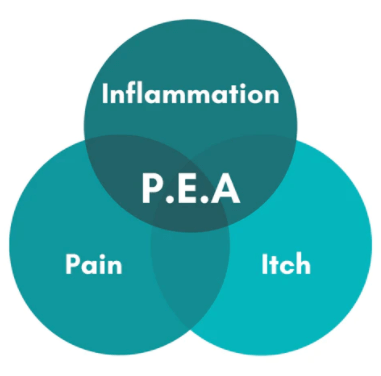Understanding the Vital Role of Participants in Advancing Medical Research

Contents [show]
Key Takeaways:
- Clinical trials are crucial in medical research and drug development, providing valuable safety and efficacy data.
- Volunteers who participate in these trials help bring forth medical innovations and contribute to the well-being of future patients.
- The ethical conduct of trials and the governance overseeing them ensure participant safety and research integrity.
- Emerging trends and technologies promise more personalized and efficient clinical trials.
- Interested individuals can contribute to healthcare advancement by considering participation in clinical research.
Exploring the Concept of Clinical Trials
At the heart of any new medical discovery lies a pivotal process known as a clinical trial. Before novel therapies or pharmaceuticals are made available to the general public, these carefully planned trials evaluate their efficacy, safety, and side effects. Each clinical trial phase—from initial small-scale Phase I studies to large-scale Phase IV post-marketing surveillance—is crucial in ensuring that new medical interventions are safe and effective for patient use.
Why Participation in Clinical Trials Matters
For medical progress to continue, the volunteers who participate in clinical research are essential. These individuals’ willingness to contribute to medical research enables scientists and doctors to ascertain the safety and efficacy of new treatments. Without trial participants’ charitable contributions, healthcare advancements would halt. When considering joining a trial, individuals contribute to this noble cause of furthering medicine while potentially gaining access to the latest treatments before they become widely available.
The Process of Joining a Clinical Trial
For those considering trial participation, the journey begins with understanding the eligibility criteria—these are conditions that determine who can participate to ensure the safety of volunteers and the validity of the data collected. Potential participants are provided with detailed information through an informed consent process if eligible. Ensuring that participants fully understand the possible risks and advantages of participating in a study is a fundamental ethical standard in clinical research. Participants embark on the trial process only after providing informed consent, which medical professionals carefully monitor.
The Realities of Participating in Clinical Trials
Day-to-day experiences as a clinical trial participant can vary greatly and might include regular health assessments, medication administration, or specific interventions related to the trial. Despite common misconceptions, most clinical trials are conducted with the utmost care for participant welfare. Volunteers are supported throughout the process with detailed information and access to health professionals to address concerns. This ensures participant comfort and maintains the integrity of the trial data.
Success Stories: How Trials Lead to New Treatments
Many of today’s standard medical treatments directly result from successful clinical trials. These success stories are not just beneficial outcomes recorded in medical journals but are often shared by the participants. Individuals who have taken part in such research usually express a sense of pride and accomplishment. Knowing that their participation has contributed to the advancement of healthcare that benefits society at large.
The Ethics and Governance of Clinical Trials
Clinical trials must adhere to stringent ethical standards and regulatory guidelines designed to safeguard participant welfare and ensure the validity of the data collected. Institutional Review Boards (IRBs) and regulatory agencies such as the FDA in the United States meticulously oversee these trials. Ensuring that each study is ethically sound and that participant rights are protected. This careful oversight gives confidence to both participants and the general public that the outcomes of clinical trials are obtained through responsible and ethical research practices.
Clinical Trials and Public Health
Clinical trials are not merely a step in drug development but instrumental in shaping public health policy and responding to health crises. Clinical trial data inform treatment approach guidelines, enabling healthcare systems to adopt the most effective interventions. In particular, during pandemics or widespread health emergencies, the significance of timely and well-conducted clinical trials is even more pronounced. As they provide critical insights that can save lives and curb disease spread.
Analyzing and interpreting complex data is a defining aspect of clinical research. Once a trial is completed, scientists meticulously pore over the results to conclude the intervention’s efficacy and safety. Ensuring data transparency through the sharing of results is a fundamental principle that reinforces the credibility of the trial and furthers scientific knowledge. This analysis must be meticulous, as the health of future patients depends on the trial’s conclusions.
Perspectives on Future Trends in Clinical Trials
The future of clinical trials looks promising as emerging technologies are poised to offer more sophisticated and individualized approaches to medical research. Technological innovations like artificial intelligence and machine learning promise to enhance research designs, enhance the precision of findings, and tailor medical interventions to individual genetic compositions of patients. These innovations are setting the stage for a new era in clinical research that is tailored, efficient, and patient-centric.
How to Get Involved in Clinical Trials
For those interested in contributing to the future of medicine. A wealth of resources is available to help find and evaluate clinical trials suitable for their conditions and interests. When considering participation in clinical research, reviewing the study goals, potential impacts, duration, and associated risks or benefits is crucial. Decision-making should be informed and consider personal health situations, expectations, and the advice of healthcare providers.
To delve deeper into clinical trials’ significance and societal contributions. Readers can explore resources like How Clinical Trials Benefit Society and Drive Scientific Progress. This Healthline article sheds light on the broader impacts of clinical research. Similarly, the value of clinical trials in public health crises is highlighted in the CDC’s briefing, The Contribution of Clinical Trials to Advancing Public Health. Which underscores the crucial role that clinical research played during the COVID-19 pandemic.
Also Read: The Vital Components of Medical Plastic Injection Molding





